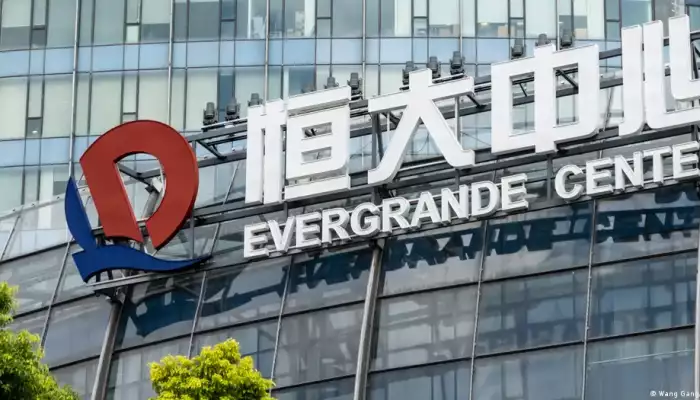
Troubled property developer China Evergrande said Monday it would continue to operate despite a court in Hong Kong ordering the firm to be liquidated as part of legal action by some of its foreign creditors.
The legal proceedings were brought by Samoa-registered Top Shine, an investor in one of Evergrande's subsidiaries, among others.
High Court judge Linda Chan cited the "obvious lack of progress" in the company presenting a "viable restructuring proposal," adding that the winding up order was "appropriate."
A crackdown three years ago by China on two decades of real estate speculation caused a deepening property crisis and left Evergrande owing $300 billion (€277 billion).
Months later, the firm defaulted on its offshore debt obligations, and a proposal to restructure its debt was rejected last month by creditors.
Monday's winding-up hearing had been pushed back from December after Evergrande's lawyers argued that none of its creditors were seeking the liquidation of the firm, which has $240 billion of assets.
The order kickstarts a long process that should see Evergrande's offshore assets liquidated and its management replaced.
But is unclear how the ruling would affect the firm's vast operations in the Chinese mainland.
Evergrande's executive director Shawn Siu called the decision "regrettable," but vowed the company's operations would continue.
The case is widely seen as a test of whether a liquidation order issued in Hong Kong would be recognized in mainland China.
Hong Kong's system of common law, which has remained in place after the former British colony was returned to China in 1997, is preferred by foreign creditors when it comes to recovering debts in the mainland.
Beijing agreed two years ago to recognize Hong Kong insolvency orders in the Chinese cities of Shenzhen, Shanghai and Xiamen.
But in practice, liquidation orders have been difficult to pull off due to China's opaque legal system.
Mainland courts have, to date, only recognized one such order, and have the ability to use their discretion over whether recognition is warranted.
Chan was expected last Monday to place Evergrande in the hands of liquidators who will try to sell off its assets to pay its creditors.
The liquidators could propose a new debt restructuring plan to offshore creditors if they determined the company had enough assets.
They would also investigate the company's affairs and could refer any suspected misconduct to Hong Kong prosecutors.
If it eventually happens, the liquidation of Evergrande's mainland assets could be a major setback for the world's second-largest economy, already struggling to recover from a draconian zero-COVID policy that kept much of the country in lockdown during the pandemic.
China's real estate sector has been a major engine of growth over the past two decades, helping Beijing's leaders to achieve double-digit economic growth at times.
In comparison, the Chinese economy grew just 5.3% last year, thanks in part to weaker exports and domestic demand, high youth unemployment and the worsening real estate crisis.
In recent years, however, several other property developers have been forced into bankruptcy while spending by construction firms has dropped by 10% annually for two years running.
Last year, sales of new homes from the 100 biggest real estate firms fell by more than a third, to 451.3 billion yuan ($64 billion, €59 billion).